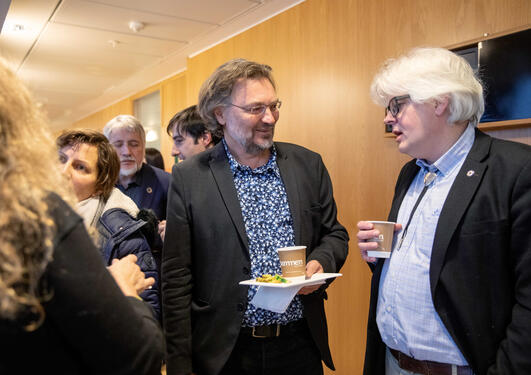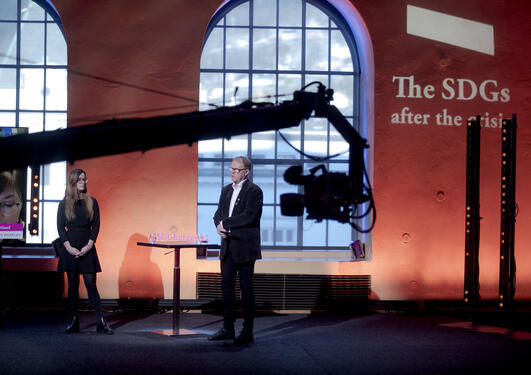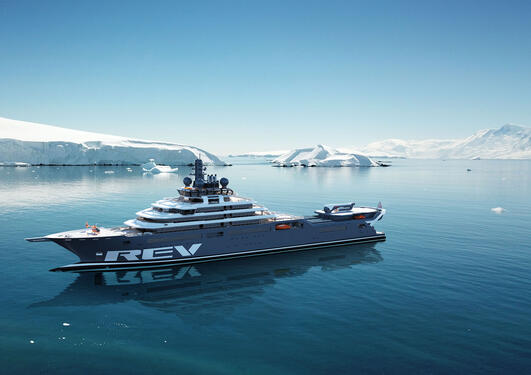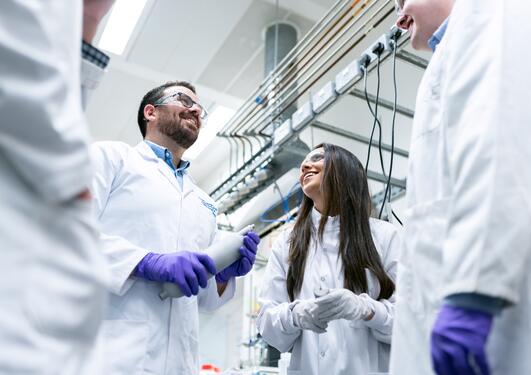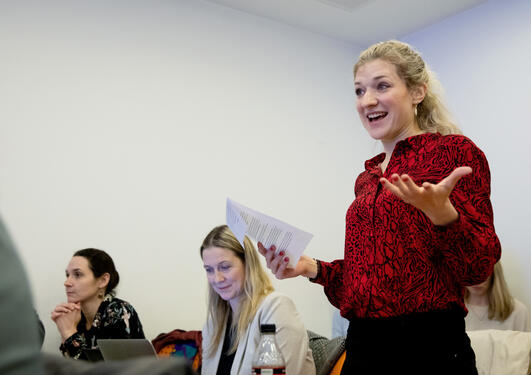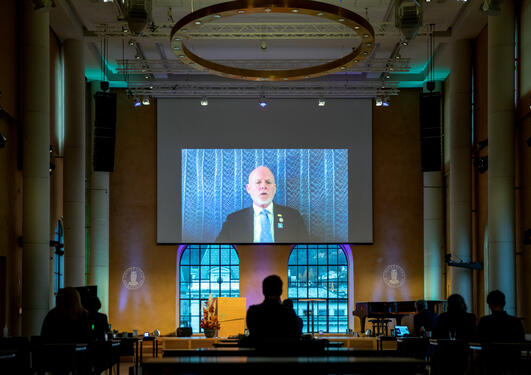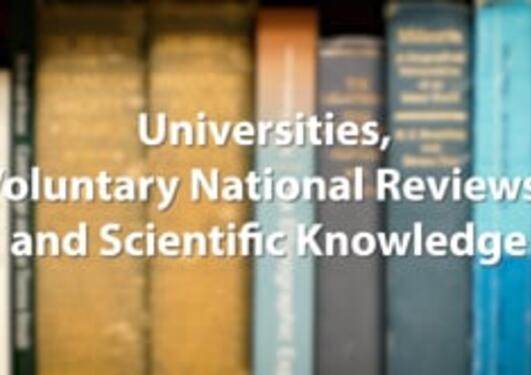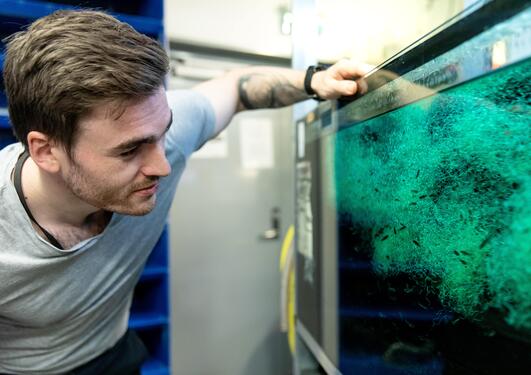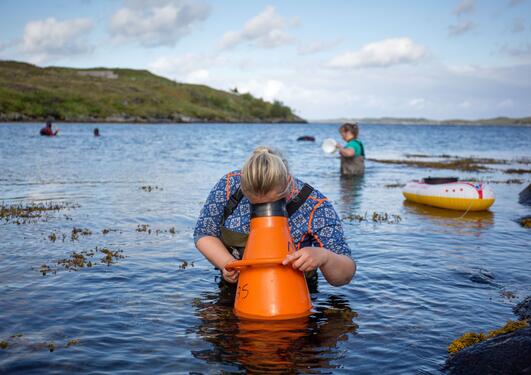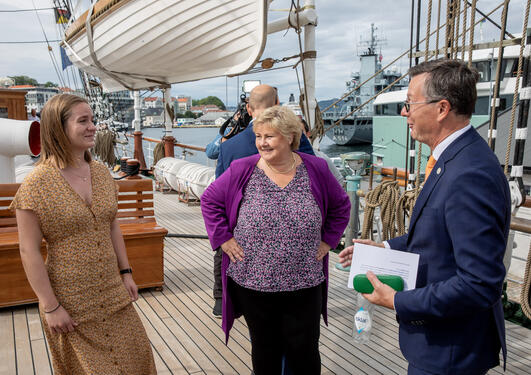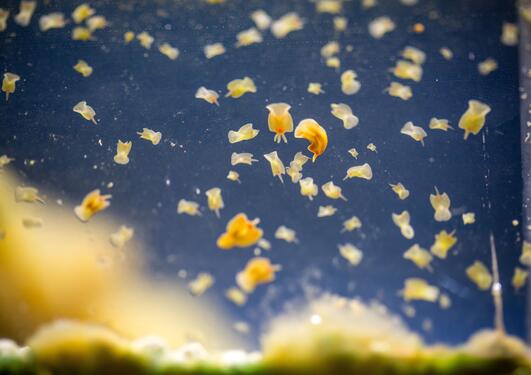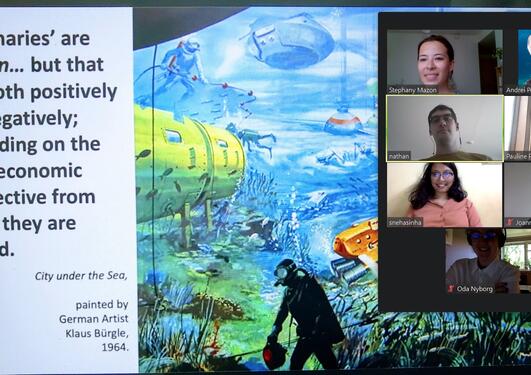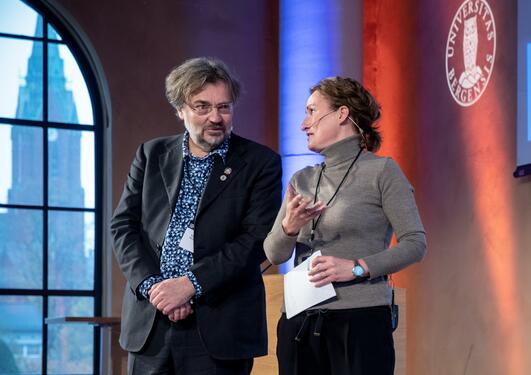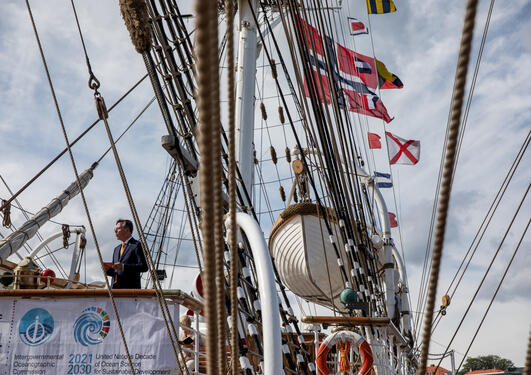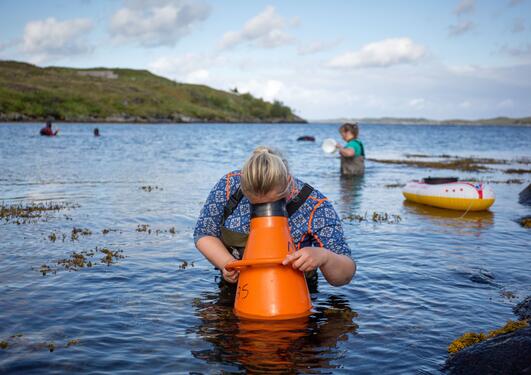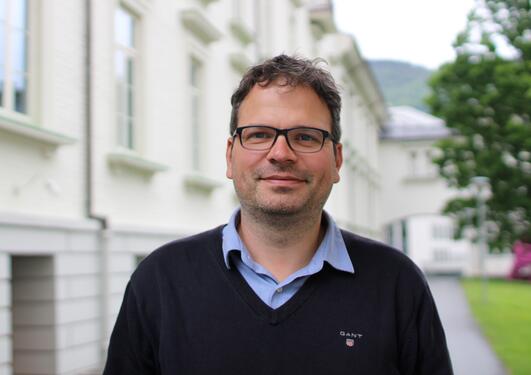News archive for Ocean Futures 2030
The Research Council of Norway is supporting the establishment of the Norway-EU Science Diplomacy Network with NOK 1 million. This is the first time SDG Bergen is partner in a research grant.
Is investing in coastal and marine ecosystem restoration and protection the way to stimulate the blue economy post COVID-19? This was one of the questions in a special parallel session on coastal communities at the 2021 SDG Conference Bergen.
REV Ocean partners with University of Bergen to support the UN Decade for Ocean Science (16.02.2021)
REV Ocean and the University of Bergen (UiB) signed an agreement February 16th which marks the beginning of an ambitious partnership focused on innovative ocean solutions and support for a sustainable ocean economy.
The UN Ocean Science Decade gets off to a flying start through the University of Bergen’s new interdisciplinary SEAS Fellowship Programme.
For the next 5 years, UiB will be training a new generation of marine research leaders and decision makers to ensure sustainable oceans.
The University of Bergen is involved in four new projects to receive funding from the Worldwide Universities Network’s Research Development Fund, which focusses on global challenges towards the 2030 Agenda.
At the Diplomacy 2.0 event, Joanna Siekiera from the University of Bergen spoke on the subject of water diplomacy as a field of science diplomacy.
How can scientific knowledge on the treasures of the ocean contribute to informing policy? This was the key topic at the second Ocean Sustainability Bergen Conference.
Every year, several countries present their Voluntary National Reviews (VNRs) to show their progress in implementation of the 2030 Agenda and the Sustainable Development Goals. But how can science play an integral part in these proceedings?
On UN Day 2018 – 24 October, the University of Bergen was announced as the official UNAI Hub for SDG14 – Life below water. Two years on, we look at what has been achieved during this time.
A new interdisciplinary project to create research leaders for marine sustainability is a prime part of the University of Bergen’s engagement with the UN Decade of Ocean Science for Sustainable Development.
At the official launch of the One Ocean Expedition on board tall ship Statsraad Lehmkuhl, several speakers highlighted the need to educate the future leaders in sustainable ocean management. In this regard, the University of Bergen plays a key role during the expedition.
How can the ocean provide knowledge and research for the medicine and food of the future? The Covid-19 pandemic has shown the world community that biodiversity is key to securing solutions for the future and how dependent we are of the secrets of the ocean.
Postdoctoral Fellow Joanna Siekiera reports on a new summer school educating the science diplomats of the future, with participation from around the world.
Biodiversity is one of the key issues in the debate for sustaining and developing our common ocean resources. Law researchers at the University of Bergen have long been engaged in judicial questions outside national marine territories.
Ocean science is at the core of the University of Bergen’s science diplomacy activities. By juxtaposing the 17 goals of the 2030 Agenda, the university and its partners are quietly providing policymakers with research-based knowledge for global sustainability.
“The ocean has enormous potential. It's not only that we can, but also because we have to produce more from the ocean if we are to avoid climate change,” said Vidar Helgesen aboard tall ship Statsraad Lehmkuhl on World Ocean Day.
The University of Bergen’s interdisciplinary SDG14 course educates the future ocean science leaders to engage critically with the 2030 Agenda.
Reporting on ocean acidification data directly targeting the Sustainable Development Goals is all in a day’s work for Benjamin Pfeil and his data group at the University of Bergen.
Pages
- 2025
- 2024
- 2023
- 2021
- 2020
- 2019
- 2018
- 2017
